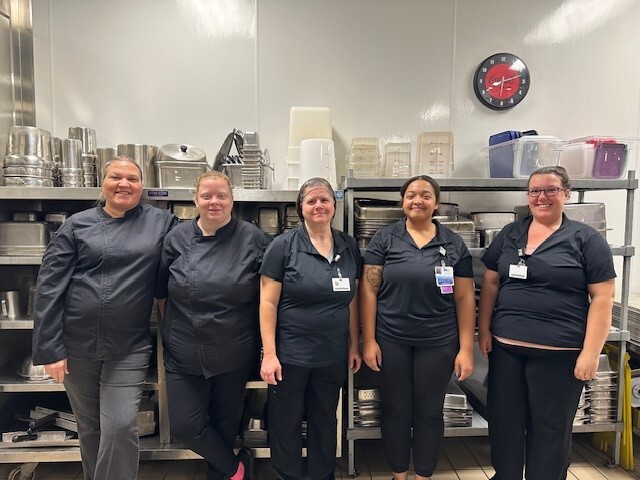
Forefront, a premier foodservice provider, embarked on a mission to combat food waste and improve resource management. The company–which has a major emphasis on culinary and nutrition services in hospitals and senior living communities–sought to align its operations with its core values of tenacity and integrity. This commitment led them to partner with Leanpath to formalize their approach to an issue that, while daunting, presented a clear opportunity for improvement.
Forefront's efforts quickly yielded impressive results. Within a year of implementing Leanpath, four of their healthcare sites reduced food waste by an average of 40%, with one location achieving a remarkable 50% reduction. The success of this initiative was not just a testament to the technology but also to a fundamental shift in kitchen culture.
A New Approach to Food and Resources
Prior to Leanpath, Forefront's food waste was an unmeasured problem. The initial data from the platform was eye-opening. Chris Greve, Senior Vice President of Culinary Innovations, was most surprised by the sheer volume of food being wasted and the number of meals it represented. This insight galvanized the teams, who quickly embraced the challenge of making better use of their ingredients.
"You cooked to serve and then you discard it," Chris explained, describing the old industry standard. "Repurposing wasn't even a word we used in the healthcare industry a few years ago."
With Leanpath, that changed. The platform gave kitchen staff the visibility they needed to see their waste and the creative freedom to reduce it. Repurposing became a real focus, and the team began to incorporate these conversations into their daily huddles.



Fostering a Culture of Creativity and Accountability
The most significant change was the level of engagement among kitchen staff. Rather than just being told to save items, employees began taking the initiative on their own. Mikala Harris, a retail manager at Forefront, noted that staff now "take the reins" and actively brainstorm ways to repurpose food.
This shift has unlocked a wave of culinary creativity. Staff members have developed unique and effective ways to use ingredients that would have otherwise gone to waste. Examples include:
- Sweet Breakfast Casserole: Leftover biscuits and other breads are turned into a popular "French toast-type bake" sold in the cafeteria.
- Creative Sauces and Dressings: A chef developed a way to make a peanut butter dressing or marinade by adding ingredients directly into large, nearly empty peanut butter jars and shaking them to release all the remaining product.
- Repurposed Desserts: Leftover brownies and pie are transformed into new creations like parfaits or mixed into hot oatmeal, delighting guests and residents.
Forefront even launched a formal competition called "Second Chance Chef" to celebrate these innovations. This three-month contest received over 35 entries, further cementing the team's commitment to waste prevention.
Expanding Skills and Improving Processes
The Leanpath partnership has prompted Forefront to re-evaluate their entire operation. The focus on food waste has led to conversations about core processes, such as the proper use of production records and forecasting. The team is now asking important questions, like whether it makes more financial sense to buy pre-peeled carrots or pay staff to peel them and deal with the associated trim waste.
Additionally, the company is investing in staff education, teaching new skills like:
- Dehydrating
- Pickling
- Lacto-fermenting
- Candying
These new skills allow chefs to preserve ingredients that are nearing their end, such as strawberries for infused vinegars, or lemons and limes for preserved peels.
Leanpath's food waste management system also provides powerful tools that help with training and communication. The platform's AI-powered vision allows managers to see pictures of food waste, which helps them identify where staff may need additional training on things like proper cutting techniques. On a broader level, Chris uses Leanpath's Impact Update reports to provide high-level summaries to ownership, demonstrating the financial and operational benefits of the program without getting bogged down in granular data.
For Forefront, a formal food waste prevention system is no longer optional—it's essential for any responsible foodservice operator. The results speak for themselves, proving that a commitment to sustainability is integral to Forefront’s brand promise of Elevating Every Day through more creative, engaged, and financially sound operations.
